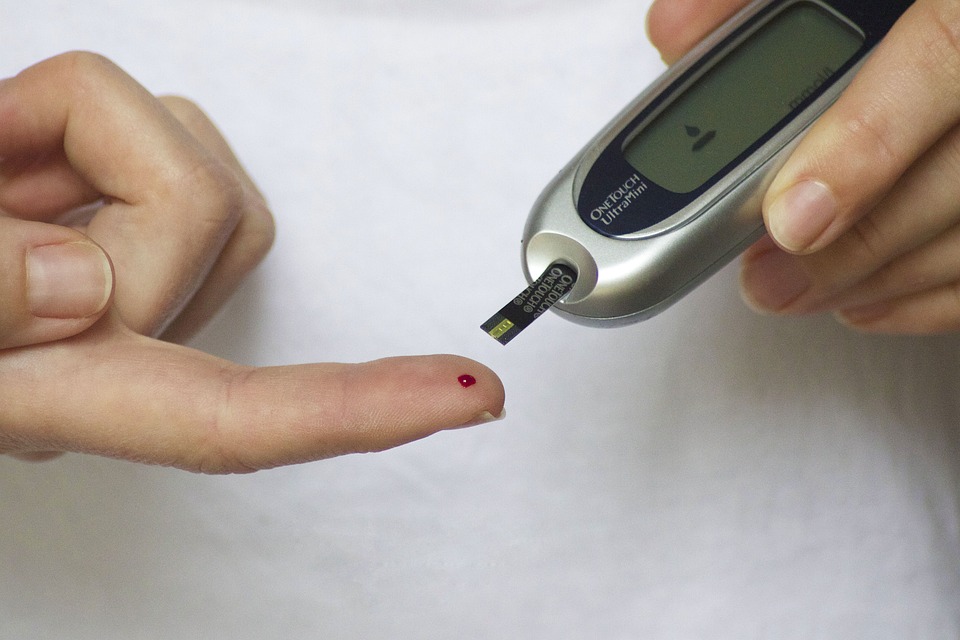
The urgency of finding treatments for obesity is undeniable – recent figures from CDC show that 66% of American adults are considered to be overweight, with over 40% classed as obese. Overweight individuals are more apt to suffer untimely passing and medical conditions including coronary illness, stroke, type 2 diabetes, and certain forms of cancer. Obesity is one of the chief causes of these types of preventable health troubles.
About 50% of American adults attempt to reduce their weight, usually by increasing their physical activity, cutting down on the amount of food they eat, and increasing the amount of fruit and vegetables they consume, as reported by the CDC. Studies demonstrate that although a lot of people can reduce their weight by following certain techniques, the weight may come back if individuals depend only on modifying their habits.
As Timothy Garvey, MD, a professor in the Department of nutrition sciences and director of the Diabetes Research Center at the University of Alabama at Birmingham puts it: “This is an affliction that needs to be managed for an eternity, and even when people transition their habits, they are still obliged to battle weight gain.” Drugs can halt the functions that lead to the attainment of extra pounds.
The Troubled History of Early Weight Loss Drugs
Prescription medicines used for weight reduction are typically accepted for grown-ups with obesity who have a body mass index (BMI) of 30 or more, or adults with a BMI of 27 or above accompanied by at least one health issue related to their weight issues such as high blood pressure, type 2 diabetes, or high cholesterol, as reported by the National Institute of Diabetes and Digestive and Kidney Diseases.
Only a minute proportion of people who fit the qualifications opt to take medications to decrease their weight. A research paper from 2019, posted in the journal ‘Obesity’, examined the medical prescription information of over two million adults qualified for medication for obesity control from the years 2009-2015. It was discovered that only 1.3 percent of them followed through with the instructions on the prescriptions.
A key reason for the issue is safety worries, mainly because some of the original drugs used to reduce weight many years ago carried the possible danger of serious consequences. Several treatments became such a risk that they had to be removed from circulation, as stated in an editorial linked to the latest research in The New England Journal of Medicine. This list included various amphetamines which generated dependence; fenfluramine, which damaged the heart valves; and lorcaserin, which raised the danger of cancer.
Untested, unsafe diet pills have a long history, too. Since the 1940s, American women have been aggressively targeted with combinations of hunger suppressants often referred to as “rainbow pills.” The capsules, which often had vivid colorings, would typically contain stimulants, water pills, purgatives, and thyroid hormones to help encourage weight reduction. Generally, they were combined with benzodiazepines, barbiturates, and antidepressant medications. By the start of the 1960s, after these highly potent combinations of drugs had led to the deaths of many people, in the United States. The FDA took them off the market.
No extended experiments were done prior to employing these drugs in attempts to treat obesity. Dr. Frank Greenway, chief medical officer and professor at the Pennington Biomedical Research Center of Louisiana State University, warns that using these drugs for longer periods increases the possibility of unanticipated reactions.
During the 90s, a brand new diet drink referred to as “fen-phen” began gaining widespread popularity without having been tested. This beverage incorporated the psychiatric medication fenfluramine, which elevates concentrations of the brain chemical serotonin and encourages feelings of fullness, with the appetite-diminishing medication phentermine. An earlier form of fenfluramine, known as Pondimin, had been available for over twenty years, and Redux, the newer variation, had been sold for around one year before both were removed from shelves in 1997 due to worries that they could cause heart valve issues.
A drug used to suppress appetite, known as sibutramine and sold as Meridia, was withdrawn in 2010 after having been available for more than 10 years, due to a heightened possibility of cardiovascular problems and strokes. In 2020, lorcaserin (Belviq), a drug prescribed for weight loss, was pulled from the market due to worries that it might lead to cancer, despite having been available for ten years.
Tougher Testing Requirements
At the conclusion of the 1990s, due to the numerous cases of weight loss medications being retracted from the market because of threats to safety, the FDA urged that any new drugs created for treating obesity should go through a year-long evaluation before gaining authorization. This ruling was not applicable to Redux or Meridia, as their experimentations had already been initiated. But it did improve the examination of the medications that succeeded, such as Belviq.
Adam Gilden, associate professor and researcher of obesity at the University of Colorado School of Medicine, states that all drugs authorized in the last 10 years have an excellent safety performance thus far. Some of the more modern medications mix medications that have demonstrated their safety when taken alone or those that have been used to treat type 2 diabetes for quite some time before being accepted as treatments for obesity.
Dr. Gilden noted that we can be confident that these medicines are secure. Every one of these medications will go through extensive studies after they have been released in the market, to measure their safety and effectiveness on a longer-term basis.
Weight Loss Varies With Newer Drugs
Doctors point out that the newer medications for weight reduction don’t appear to present the same potential risk as with rainbow pills or fen-phen, but they may not be as successful either.
In a 2021 analysis presented in Current Obesity Reports, scientists compared the effectiveness of various newer anti-obesity therapies by examining the outcomes of various clinical trials through the use of customized metrics. Researchers analyzed the results of clinical trials where all the participants practiced lifestyle modifications to reduce weight, such as changing their diet and exercising, and then divided the participants into two groups; one group was given a placebo pill, while the other was prescribed a weight loss drug.
The researchers aimed to discover the sole impact of the weight loss drugs, which they did by comparing the average amount of weight lost by the placebo group to the average amount of weight lost by the drug users. It was determined that, on average, people lost 6.8% of their body weight while taking phentermine/topiramate (Qsymia), followed by 5.4% with liraglutide (Saxenda), 4% with naltrexone/bupropion (Contrave), and 2.9% with orlistat (Xenical).
A recent obesity medication, semaglutide (Wegovy), was reported in a 2021 article in The New England Journal of Medicine to have led to individuals suffering from obesity losing 12.4 percent of their body mass as calculated by the same methods. The FDA is currently assessing tirzepatide (branded as Mounjaro for diabetes) as a treatment for obesity. This medication has apparently yielded impressive effects; in fact, subjects that took the highest dose experienced a reduction of almost 21 percent of their weight, as reported in The New England Journal of Medicine.
According to Melanie Jay MD, an obesity researcher and associate professor at the New York University Grossman School of Medicine, the present time is extremely stimulating with regard to obesity medicine as there are a lot of effective treatments to choose from.
How Do Medications Help?
Presently, the Food and Drug Administration has given the ok to two medicines for long-term obesity treatment: Xenical and Meridia. They work in different ways. Meridia has an effect on certain brain chemicals which makes individuals feel satisfied without consuming as much food.
Xenical works very differently. It isn’t absorbed by the system. Rather than being absorbed, it links to the fat cells in the digestive system, just like the compound Olestra used in some low-fat products. The standard dose can decrease the amount of fat being taken in by approximately 30%.
The FDA has given the go-ahead to the utilization of slimming drugs in individuals with a BMI of 30 or as low as 27 in some individuals who have illnesses associated with being overweight, such as diabetes or heart disease. The Body Mass Index is a metric calculated based on a person’s height and weight. As indicated by the National Institutes of Health, a BMI between 18.5 and 24.9 is considered normal, whereas one from 25-29.9 is considered overweight, and anything above is classified as obese.
Other drugs may be helpful in some cases. Wyatt has seen positive results from using the generic medicine phentermine, which works in the same way as Meridia to curb hunger. The FDA has not given the okay for phentermine to be used over a long period of time. They didn’t conclude that it was perilous, simply no one invested capital into researching its long-term success. Due to the cost of research, no business in the pharmaceutical industry is willing to invest the necessary resources to investigate a drug without direct ownership.
Modest Results
People may have hopes for a pill that will make them slim down without having to diet or exercise, which several unscrupulous people have claimed is possible, but simply put, none of those drugs can really do that. Studies demonstrate that these medications are only effective when accompanied by life changes.
The degree of weight that people shed on weight loss medications is not the same for everyone; some people experience excellent results while others do not. The typical maximum amount of weight loss is usually no more than 10% of what the person started with – that is a reduction of 20 pounds for someone who weighs 200 pounds. In the majority of cases, individuals will experience the biggest decrease in their weight during the initial three to six months that they are taking these medications, with their weight then leveling off.
Losing ten percent of one’s weight might not seem like much. Experts emphasize that even shedding a small amount of weight, such as 5%, can have a tremendous impact on reducing the chances of getting an illness. Research has revealed that drug treatments designed to help people shed weight can diminish health hazards. A recent investigation conducted on Xenical revealed that it has the capability to reduce the chance of developing Type 2 diabetes by almost a third.
How Long Would Someone Need to Use Them?
Research has established that if a person taking one of these drugs does not shed four pounds in the first month, it is not likely to be effective and can thus be discontinued. If a drug proves to be beneficial, it is likely best to keep using it over time. Weight loss drugs are not a quick fix. Wyatt states that these are comparable to medicine used to treat hypertension or diabetes. Obesity really is a chronic disease.
Are They Safe?
Safety is a major concern for anybody thinking about taking weight-reduction medication. The fear is understandable. It was strongly publicized that the usage of the weight loss drugs fen-phen, which is phentermine and fenfluramine combined, posed a risk of detrimental heart valve damage to some individuals. Consequently, fenfluramine and Redux, another comparable diet pill, were withdrawn from the market in 1997. Phentermine is seen as safe when used by itself and is still in use currently.
It is wise to be careful when using any kind of weight loss medication. We do not have much information regarding the enduring impacts of these medications since they have not been utilized for an extended period of time.
It can be affirmed that the protection records of Xenical and Meridia are excellent, and the possibility of unpleasant effects is minimal. Using Meridia may result in a person having severe headaches, an excessive amount of saliva in their mouth, and increases in both their pulse and blood pressure.
Xenical may lead to digestive system issues like spotting, having to use the restroom quickly, and an augmented level of bowel movements. The negative effects of this tend to lessen as time passes and may worsen if someone eats a meal high in fat. Xenical has the potential to diminish the number of vitamins taken in by your body, so you may need to give yourself a vitamin supplement in its place.
No adverse reactions have been discovered such as those connected to fen-phen.
“Any medication carries risk,” says Wyatt. She believes that Xenical and Meridia are quite secure when compared to other medications that medical professionals typically give out. Perhaps the safety standard for weight loss drugs may be even more stringent due to the fen-phen episode.
The Future of Weight Loss Medications
There is much anticipation that the fat loss medications of the coming years will seem archaic compared to Xenical and Meridia. As researchers expand their knowledge of the intricate system governing our weight, the medicines we use will be of more advanced technology.
Continuing to take a weight loss drug for an extended period of time does not necessarily mean that individuals must take the same medication for the remainder of their lives. It is conceivable that someone could alternate between taking Xenical, Meridia, or any other type of medication.
It may be feasible for individuals to have pauses in treatment. “Weight isn’t like blood pressure,” says Wyatt. If you cease consuming your blood pressure medication, it will rise in a matter of days. Evidence from numerous studies has been unable to demonstrate any benefits to employing weight loss medications on a recurrent basis. Additionally, restoring lost weight appears to require a longer period of time. As researchers continue to discover new ways to effectively use these medications, it could offer the potential for a therapeutic method in the distant future, states Wyatt.














